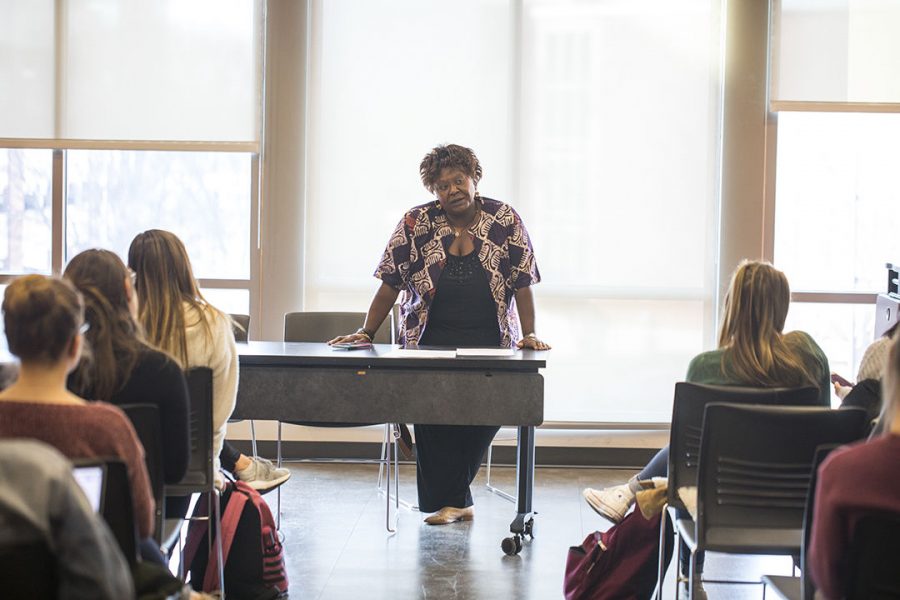Social justice salon discusses gendered practices in South Africa
March 20, 2019
Students and community members attended this month’s Social Justice Salon on Tuesday which featured a discussion about gendered practices in South Africa.
The event, hosted by the Center for Citizenship and Social Justice was held in Downing Student Union. Students and community members were encouraged to come and participate in the discussion titled “Women and Men Equal? You’re kidding, right?” led by professor Saundra Ardrey.
Leah Ashwill, director of the Center for Citizenship and Social Justice, introduced Ardey, who specializes in voting and electoral behavior. She began her lecture and announced it was an informal event before she moved on.
Ardrey received a Fulbright Award for the 2017-2018 school year, which she used to do research and teach at the University of Limpopo in South Africa for a year. She said the purpose of this trip was to establish a Women’s and Gender Studies at the university.
Located in the province of Limpopo, Ardey said the population was 97% african american and mostly male. She said in a class of 17 students, there were 14 males and three females.
“I would be in the majority,” Ardey said. “So there would be no racism.”
In her lecture, Ardey said she did not anticipate the amount of sexism in Limpopo because of her relief to be freed from racism.
“The system of patriarchy is alive and well all around the world.” Ardey said.
Ardey described the restricted the status of women in South Africa to be the result of tradition and culture. She said this caused the women of South Africa to become restricted to the private sector of life while the men lived in the public sector.
“When tradition is broken, it must be with the consent of a male family member or a village male elder,” she said.
Ardey then spoke about her own experience in Limpopo. When she engaged in negotiations with leaders of the university, she said it was always in the company of a male. The university also provided her with a male companion to accompany her around Limpopo. She was not able to sign an apartment in her name or to rent a vehicle under her name. These things she had to do through her husband who initially accompanied her to Limpopo and stayed with her during her first week there.
The main discussion of the lecture focused on the gendered practices of lobolo, or bride’s price- virginity testing and female cutting. The group discussed whether or not these practices should be restricted on the basis of universal human rights.
“There is no ultimate standard of good and evil,” Ardrey said. “Every judgement of right and wrong is dependent on society.”
Attendees of the lecture, such as Lacretia Dye, reacted passionately to what Ardrey had to say, speaking their opinions freely during the event.
“I wrestle with the idea that we adopt things that have been taught to us and never question them,” Dye said.
Dye said that the event’s topic is what drew her. She said she also came because of her friendship with Ardrey.
News reporter Abbigail Nutter can be reached at 270-745-6011 and abbigail.nutter168@topper.wku.edu.Follow her on Twitter at @abbeynutter.


















